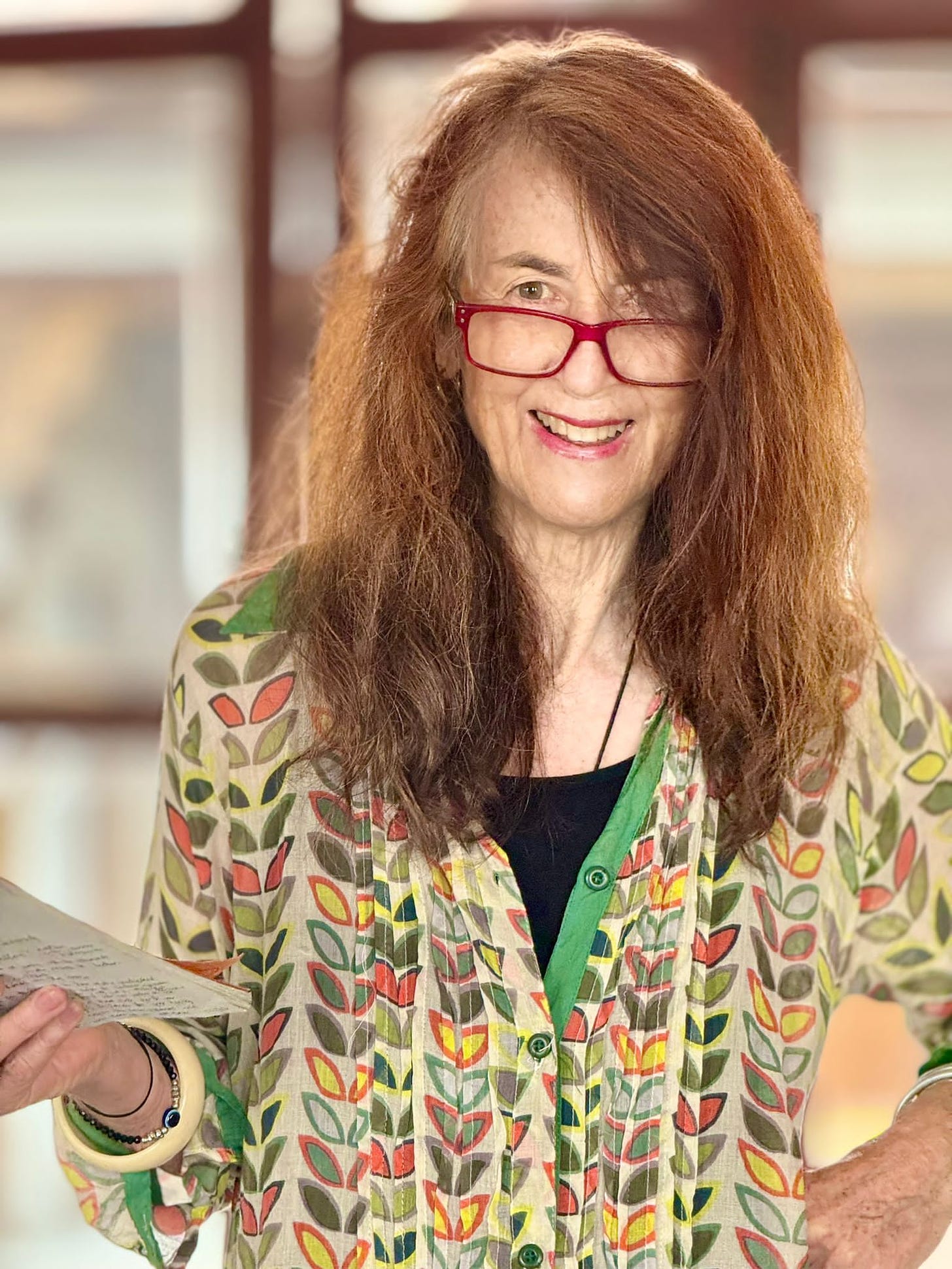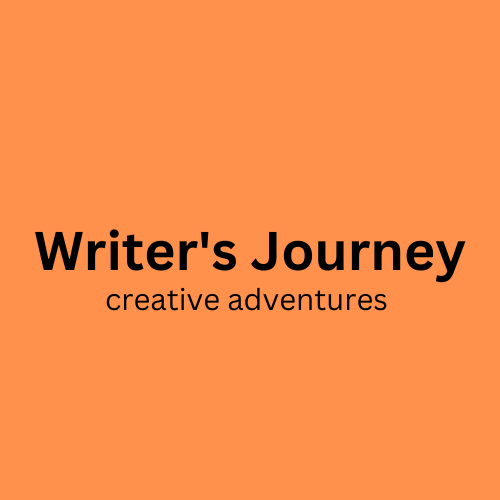I still have a fantasy of being financially secure, of leaving something behind for my kids and grandkids.
Decades series: seventies
Hi and welcome to The Ladybird Purse, my weekly newsletter about women and money.
This is the seventh post in my series looking at money experiences and attitudes through life, decade by decade. You can find links to the previous posts at the end.
Seventies
Jan Cornall, 74
I’ve interviewed Jan before and I wouldn’t normally do a follow up for a couple of years, but Jan is fascinating, so once I knew I wanted to speak to someone in their seventies, I knew I wanted it to be Jan.
Jan Cornall has worked in the creative arts industry for several decades. She’s been a performer, singer, songwriter, author, playwright, screen writer, poet, teacher, mentor, traveller and for the last 20 years she has been taking writers and artists on creative journeys to inspiring international locations.
Jan’s novel Take Me to Paradise and her collection of stories, songs and poems, Archipelagogo, are set in one of her favourite destinations, Indonesia. Her most recent work, Looking for Duras, a Mekong Journey, is a travel memoir set in Vietnam and Cambodia. Jan lives in Sydney, has two grown up kids and five grandkids.
How were financial decisions made within your family when you were growing up?
That’s an interesting question because I really don’t know. I assume my mum and dad had discussions about finances but we kids were never party to them. And because there was little instruction given around money, we weren’t very financially literate.
I do remember having a piggy bank and when it was full we would take it to the real bank to get it opened. That must have been when we had our first savings accounts (fostered by an arrangement between the bank and our school —imagine that happening today!).
On Tuesdays we could bring some coins or maybe even a note to school and deposit them in our bankbooks. I remember feeling a great sense of satisfaction watching the columns of numbers grow over the weeks. Each entry had a coloured stamp with the date of deposit, then every month, a stamp that said ‘interest earned’. I loved the feeling that my money was actually making more money, even though quite miniscule.
What did your parents teach you about money? Intentionally or otherwise.
Intentionally they reinforced the message that saving was good and that was about it!
Unintentionally they let us know that money was scarce, that we couldn’t afford the expensive items. And that buying things on the never/never was a fool’s game.
Living on a school teachers’ wage and moving towns often, we made do with what we had. My dad had no shame in driving out of date, second hand cars but as a teen I felt acutely embarrassed that we didn’t own the latest Ford Falcon that all the farmers kids got around in. (Our two-tone green Chevrolet with fins would be worth a mint now!)
But the main message about money came from my mother when we went shopping in the city for new clothes. I was always drawn to top shelf items and the message was the same — we can’t afford it, we have no money. Did we really have no money or was that just the mantra passed down by her parents who lived through the great depression? I still don’t know.
Did you experience any financial challenges when you started your career?
Because I was a good saver by the age of 24 when I left my first career (primary school teacher), I had enough in the bank to fund an overseas trip. I stayed away for four years, hitching across the USA and Canada and travelling to Central America, UK and Europe. I found odd jobs where I could — in the US, I planted trees, busked, even played in an all girl Latin jazz band. In London I worked as a filing clerk.
You could say that those early savings were a great investment in my future career. I had started writing songs on my travels and by the time I returned to Australia I had a whole bag full. The theatre company I belonged to before I left invited me to be their first playwright in residence. I wrote a ground-breaking musical — a witty take on the sexual revolution. It became a cult hit and my writing career was born.
How has your perspective on money changed over time?
I’ve often regretted that I was never able to save again like I did in my early years. I understand why my father so desperately wanted me to be a schoolteacher like him. A regular income, good holidays, security, superannuation — all the things I haven’t had as a freelance arts worker.
What I have instead is the freedom to initiate and develop my own projects, which in the early days I did with the help of government arts grants. In the past 20 years I have independently run my own business, teaching workshops, mentoring writers and leading international creativity retreats.
While it hasn’t made me rich by any means (mostly I just break even) it does fund the creative, travelling lifestyle I love to live, all the while supporting others to live their creative dreams.
Looking back now, I can see how I developed a different approach to the mainstream financial model (work now, play later). I came to view money as a means to a creative end, a currency that supports the creative flow of ideas, dreams, cultural exchange, artistic community, joy, love and support.
So while I could berate myself for losing my saving habit, for not planning for the future, not investing in bricks and mortar, not having a nest egg to fall back on, I can also see that the investment I made from the pennies and shillings I collected in my piggy bank is still paying creative dividends.
Are there any financial goals or milestones you would still like to achieve?
As an ageing freelancer (74 and going strong!) with very little to fall back on, it’s easy to fall into pessimistic states when I think about my financial future. But in Australia we are better off than many. Medical care is free and if you are over 67 and eligible you can get the government pension (which I regard as an artist’s allowance).
Even with my go-with-the-flow approach I still have a fantasy of finally of being ‘financially secure’, of leaving something behind for my kids and grandkids. I’m not quite sure how to achieve it, but where there’s a will there’s a way!
What are the biggest lessons you've learned about managing money?
Not to be afraid of it. Not to see it as a mysterious language of the privileged few. Learn how to speak it.
Have you encountered any gender-specific financial challenges or biases?
I would have initially answered no and yet I am one of the women that makes up the alarming statistics regarding women and money in our country.
When I was growing up in the 50s and 60s, men looked after money matters, women looked pretty. It’s sometimes shocking to admit that inherited attitudes might still lurk in the mind of an ageing feminist. This question makes me want to investigate further.
How have you approached saving for retirement or planning for the future?
I haven’t, I’m only starting to think about it now, which some might say is a bit late.
While retirement is not really something most artists relate to, the other day when I was feeling a pang of insecurity about my future, I decided I would get out the coloured pens and a big piece of butcher’s paper and make a 20-year plan. (That’s how I manifested all the creative adventures of the past 20 years, so I don’t see why it can’t work again).
In my plan I will keep working as a creative freelancer (at a pace that suits me) until the age of 94. Then if I feel like it, retire. If fate has something else in store for me before I reach my goal so be it, but just mapping it out feels extremely liberating and energising!
What advice would you give to younger generations of women when it comes to finances?
Be confident and forthright, don’t be afraid of money, educate yourself on money matters — learn the language, the tricks of the trade.
Even employ a money coach to help you get a leg up. A young friend (43) who is a fellow arts freelancer did this recently. She gained the confidence to buy a small apartment in the country town where she is currently contracted and has a plan over time to buy two more. A year ago she didn’t have any idea of how to even dream of such a thing, let alone do it.
Paid subscriptions enable me to keep writing these newsletters. If you’re not a paid subscriber already, I’d love it if you’d consider upgrading. (And if you are, thank you, I love you.)
If you would like a paid sub, but can’t afford it right now, email me and I’ll sort it.














This is so interesting! I’m still three decades away from my 70s, but much of this resonated with me. My perspective has changed a lot over time too, and I’m sure will continue to change.
"In my plan I will keep working as a creative freelancer (at a pace that suits me) until the age of 94." I love this, Jan. To enjoy the creative work you do is such a gift.
Thank you, Jan and Keris. Really interesting.